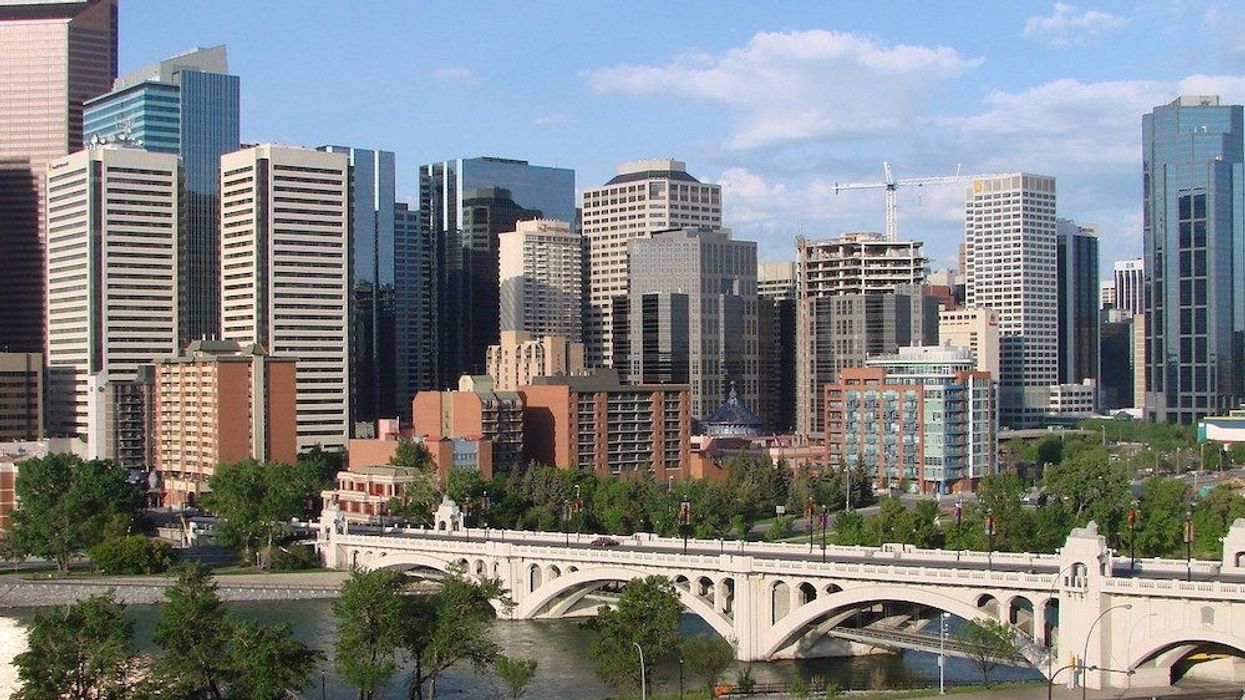Calgary was named the 65th best city in the world by Resonance Consultancy's Best Cities organization, the second-highest Canadian city after Toronto, and ahead of Vancouver -- not to mention world-renewed cities such as Mexico City, Mumbia, and Shanghai -- while Edmonton didn't make the list at all.
A lot of these kinds of rankings are fairly arbitrary at the end of the day, but Best Cities at least has a methodology that makes it clear how their rankings are generated.
The rankings evaluate cities based on six pillars: Place, Product, Programming, People, Prosperity, and Promotion.
Place is the perceived quality of a city's environment -- natural or built -- and its climate, safety, landmarks, and neighbourhoods. Product is the city's institutions, infrastructure, and attractions. Programming is the arts, culture, entertainment, and culinary scene. People includes the diversity of immigration rate; Prosperity includes employment rate, income equality, and how popular it is amongst business giants; and Promotion includes the quantity of media coverage about the city -- TripAdvisor reviews, Instagram hashtag, social media location check-ins.
Qualified cities were then ranked -- not scored -- in each of these six categories, with an aggregate ranking then determined based on how well the cities ranked in the individual categories.
By that methodology, Calgary ranked 28th in terms of Prosperity and 44th in terms of programming, and much of that -- as you may imagine -- is attributed to Calgary being "Canada's energy capital" and "building for its future [while] putting a struggling oil industry in the rear view."
"Although Toronto is Canada’s business heart, it’s Calgary -- with one of the country’s youngest populations and home to its oil industry-forged entrepreneurialism -- that’s always been the challenger," Best Cities says. "People here walk like New Yorkers and cut to the chase like Texans. No wonder it’s home to the most Americans per capita in Canada."
Best Cities also points out that Calgary ranks 22nd globally based on GDP per Capita, which is by far the highest in Canada, and that Calgary is now "slowly emerging from a spell of economic hardship not seen in decades", pointing to the connection between Calgary's fortunes and the price of crude oil.
READ: New Proposed Budget for Calgary Includes 4.4% Property Tax Increase
On the flip-side, Best Cities notes that Calgary has one of the highest unemployment rates in Canada, in part due to the COVID-19 pandemic. They do, however, note that it's improving "as home construction ramps up in the hopes of luring new residents seeking affordable real estate." That affordability, of course, was put front-and-center of the "Alberta is Calling" advertising campaign the Province of Alberta launched in August.
They also note that Calgary is set to have a significant new wave of quality-of-life enhancements, pointing to the recently-opened Central Library and the "burgeoning cultural hub" of East Village. The BMO Centre expansion project is also set to finish in a few years, with a new event centre replacing the Saddledome likely to follow, not to mention big projects elsewhere in Calgary, such as the massive Richmond Green Park redevelopment.
Best Cities also named its Best Small Cities in Canada, and Alberta did fairly well in that department, claiming three spots on the 25-member list. Lethbridge came in at tenth, St. Albert came in at 14th, and Airdrie came in at 22nd.
Regardless of what you feel about how Calgary and Alberta did in these rankings, at least they made the list. Better luck next year, Edmonton.


















